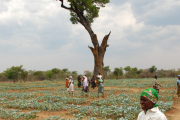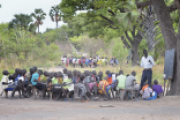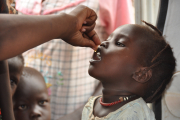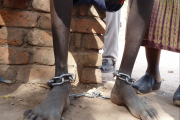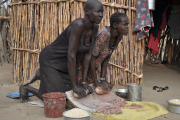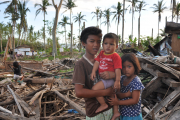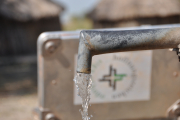Help in the short term, make an impact in the long term, meet basic human needs: Below are the seven focus areas of Sign of Hope.
Worldwide, 767 million people live in extreme poverty, the majority of them in countries in South Asia and sub-Saharan Africa. They have less than 1.90 US dollars a day to live on. An overriding goal of international development cooperation is therefore to reduce poverty in countries of the global...
Education is one of the essential prerequisites for combating poverty and dependency. In recent decades, the literacy rate has increased significantly, but 13 percent of the world's population still cannot read or write. Alongside this, however, integration, equal rights or the creation of a...
Every human being has a right to health and medical care. But in many parts of the world, neither is a given. Access to hospitals and doctors is often unaffordable - if available at all. Poor people in particular continue to die from the consequences of preventable diseases, and children and women...
Sign of Hope stands by people worldwide whose rights are violated or threatened. A particular focus is on religious freedom - we advocate for religious tolerance and the rights of persecuted religious minorities. On the basis of our own research, both in the affected countries, but also through...
As important as food and nutrition are for human life, these basic human needs are centrally addressed by Sign of Hope in both humanitarian assistance and development cooperation. Satisfying food and the intake of essential nutrients are central to the fight to overcome poverty, disease and hunger...
Floods, earthquakes, violence or hunger rob hundreds of thousands of their livelihoods every year. Immediate aid is often vital for their survival. In the field of humanitarian assistance, which consists of emergency and disaster relief, Sign of Hope supports people in need worldwide. Humanitarian...
Water is the elixir of life, as the saying goes. But in southern countries, it is commonplace to have no or only very limited access to the most basic of all goods. The climate is hot and often very dry, rivers and water points carry little of it, a public supply does not exist in many countries...


 Donate now
Donate now
